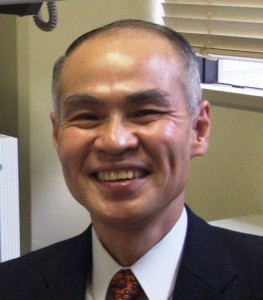The goals of Prime Minister Shinzo Abe’s agricultural co-operatives reform are to dismantle comprehensive business services of the co-ops, just like in the case of postal services. Although primary JAs may look the same on the surface after the reform, their businesses will be split up inside into different organizations such as farm co-ops specializing in sales and purchases, credit and mutual aid agencies and co-operative corporations.
An ingenious scheme to lead JAs into overhauling themselves can be seen in the proposal to restrict non-farmer members’ use of JAs’ services. If such a rule is created, JAs’ businesses widely used by non-farmer members, such as credit and mutual aid services, supermarkets and gas stations, will likely be spun off, leaving the rest to become farm co-ops specializing in sales of farm products and purchases of agricultural equipment. The proposal clearly indicates such intentions.
The idea of spinning off credit and mutual aid businesses from JAs is nothing new. Intense debate on the issue took place between Japan and the United States and among ministries when the Agricultural Co-operative Law was first established in 1947.
Maneuvering
Since it is such a longstanding issue, it is not something which can be settled with five years of surveying the amount of use by non-farmer members. It would be too hasty for JAs to think they managed to escape from their businesses being restricted in exchange for the decision by the Central Union of Agricultural Co-operatives (JA-Zenchu) to accept the plan to reform itself. It would be more appropriate to regard the situation as maneuvering by the government.
As a matter of fact, there is nothing in the current Agricultural Co-operative Society Law which states government agencies have any authority to restrict the use of JAs’ services or examine how much such services are used. However, the bill to revise the law includes a clause which can be interpreted as the government having such right.
The section 2 of the article 7 of the bill – equivalent to the article 8 of the current law which states the principle of maximum service and non-profitability – states that agricultural co-ops must give maximum consideration to expanding farmers’ income.
The newly added section will offer government agencies the authority to judge whether farm co-ops are concentrating on increasing farmers’ income and force JAs which do not abide by the law to shift from a comprehensive co-operative to a co-op specializing in sales and purchases.
It is a 180-degree policy shift from the comprehensive guideline revised in March based on the current law, which says expanding businesses for non-farmer members “is favorable in terms of securing sound management and improving services for farmer members.”
Inconsistent article 7
Can such a Copernican change be allowed? No, because it is legally inconsistent.
According to the article 12 of the current law regarding membership, non-farmer members are included in JAs’ membership framework along with farmer members. Although non-farmer members don’t have common benefit rights such as the right to vote, they have the right to claim their own benefits such as the right to use JAs’ services.
This article remains unchanged in the bill to revise the law. And the section 1 of the article 7 of the bill says JAs’ objectives will be to offer maximum quality services to their members.
It is totally inconsistent to state that members will be offered maximum quality services on one hand and try to restrict non-farmer members’ use of JAs’ services on the other hand.
The whole idea of splitting up JAs’ comprehensive services and forcing them to break up by restricting non-farmer members’ use of services is completely unacceptable not only from the viewpoint of maintaining the co-operative principles but also in terms of legal adequacy. The JA group must make it a top priority to fight to defend the current membership rules.
<Profile> Born in Tokyo in 1948, Masaaki Ishida completed a doctoral course at the University of Tokyo’s Graduate School of Agriculture. He became a professor of Ryukoku University in April after working as a professor at Mie University. He has written several books on agricultural co-operatives and regional agriculture.
(April 20, 2015)


